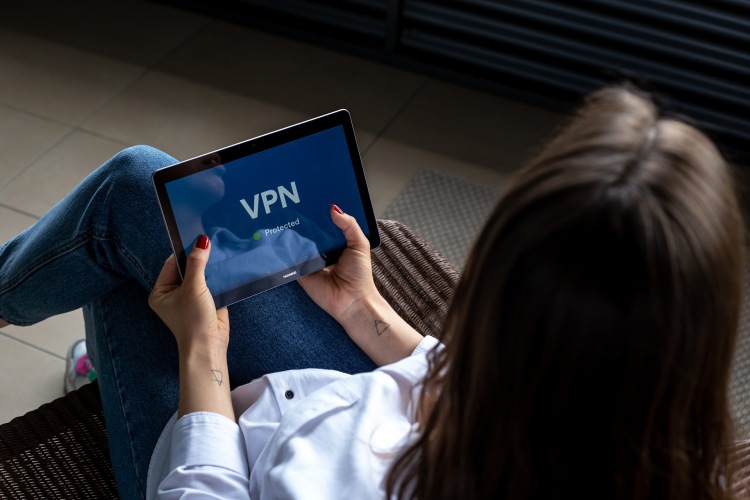Cybersecurity for nonprofits should be a key consideration for any nonprofit or charity organization. Charities assist the most vulnerable members of our society when our governments cannot. However, while we'd all like to imagine that we live in a world where this would make these enterprises exempt from cyberattacks, it does not.
Malicious cybercriminals are now more prevalent and active than ever. Recent statistics suggest that there are two attacks every minute. This means we're looking at 2200+ attacks every single day. The goal of these attacks is to find vulnerabilities in systems with sub-standard security. As such, nonprofit organizations tend to be a 'soft' and welcome target for these unscrupulous criminals.

Hackers are aware that nonprofits store a lot of sensitive personal and financial data. At the same time, most charities tend to be so trusting that they neglect to secure their systems from outside threats. This is a big mistake.
Fundraising is ultimately about trust. When you lose donor trust due to a breach in personal data or bank information, you could lose their support for life.
It doesn't matter whether you operate in the health care, faith-based or higher education space, consistency is key when it comes to fundraising. When a cyberattack occurs, your systems will be down for an extended period of time while the issue is resolved. This means your website will be inaccessible. As such, existing and potential donors will not be able to find your information readily.
In the meantime, web users will encounter warnings from their antivirus programs when they try to access your site. This does not reflect well on your enterprise. Even though the attack is not your fault, general net users will feel that your site is unsafe and probably won’t visit it again.
One of the reasons cybercriminals will break into systems is to hold the data ransom. Essentially, they will block your data or system until you make payment of a certain amount.
However, even if you do make payment, they don't necessarily keep their word. There is no obligation on their part. Some criminals have been known to destroy data completely even after a ransom was paid in full.
According to findings by NTEN, more than 80% of nonprofit organizations (NPOs) have no strategy at all in place to deal with a cyberattack if it should occur. In fact, more than 70% of charities have not even conducted a vulnerability assessment in this regard. A lot of it comes down to budgetary concerns.
A good rule of thumb is to set 5% of your NPO's annual IT budget aside to put towards security. This will make it a lot simpler to gain access to the right kind of resources.
Once you've freed up the budget to address cybersecurity, one of your first moves should be to invest in a VPN. A Virtual Private Network (VPN) keeps your data secure and encrypted. This means your digital connections inside and outside the office are hidden and secure.

Empower your staff by training them properly. Aim to host a cybersecurity workshop at least twice per year. This is a good time to go over the basics of staying safe on the internet.
Take a closer look at things like strong passwords, downloads, the use of add-ons and USB keys, etc. Also, take the time to discuss the most recent developments in cyberattacks and your NPO’s best practices.
Your NPO should be able to control and monitor who has access to data at all times. To start, every person on your team should have a personal log-in that they are not allowed to share. The same goes for external collaborators and service providers.
What would you do if a cyberattack should occur today? It's important to have protocols in place so you are able to keep the effects of an attack from becoming overwhelming. If nobody knows what to do, chaos will ensue.
As such, be ready with a firm plan of action. This will likely include the contact details of a dedicated IT professional who knows your systems.
This brings us to our next point - have an IT consultant on call. If there is not enough budget to cover a full-time in-house IT team, make sure that you have a freelancer as support.
Someone has to monitor your system so they can detect threats before it becomes a major problem. These checks should ideally be done weekly, with monthly security audits as well.
Create multiple instances of crucial data and system redundancies on your physical server as well as in the cloud. This way, you will have access to backups if one instance is compromised.
There are ways to make your system more robust. This includes the VPN we mentioned before, as well as other things like firewalls and antivirus programs. Start by getting a security assessment done and act in the areas where your system is most vulnerable.
Always ensure that the latest version of your operating system is installed. By not running regular updates, you’re leaving yourself vulnerable to hackers.
Taking care of a cyber breach can be costly. Speak to your insurance provider to set up a policy that covers you in the event of an attack. This will ensure that you can access the resources you need to get it sorted out.

Cybersecurity for nonprofits is of vital importance. Luckily, there are many things you can do to improve your organization’s cybersecurity. Simply follow the above practices and steps to ensure that you keep all your data safe and secure.
A breach can be costly! So, investing some resources into your cybersecurity is definitely worthwhile.

Adie M. is a skilled writer with a strong background in marketing. She is dedicated to creating compelling content for the nonprofit sector. She holds a Postgraduate Diploma in Management, specializing in Marketing, and a Bachelor's degree in Environmental and Geographical Science and Psychology from the University of Cape Town. With experience in digital marketing, Adie combines her technical expertise with a passion for impactful storytelling. She is committed to using her writing skills to support nonprofit organizations and drive positive change.
